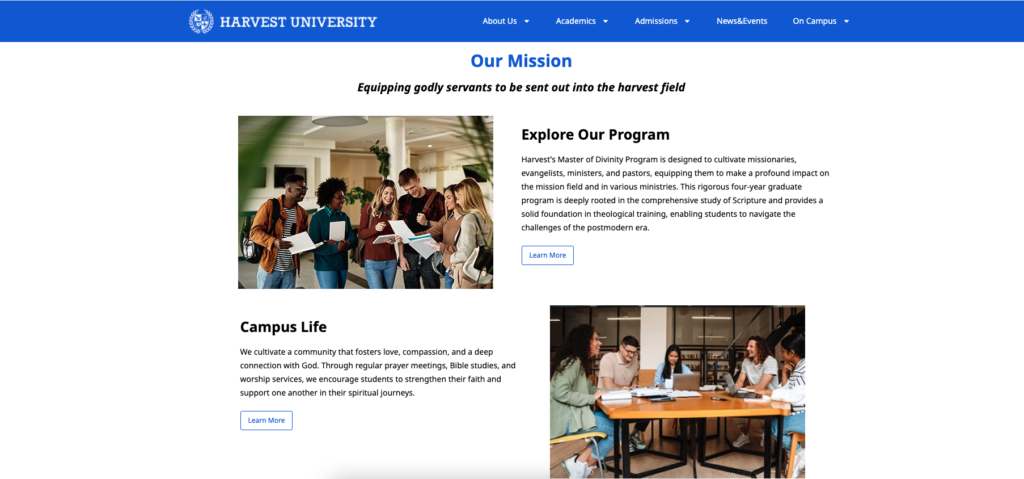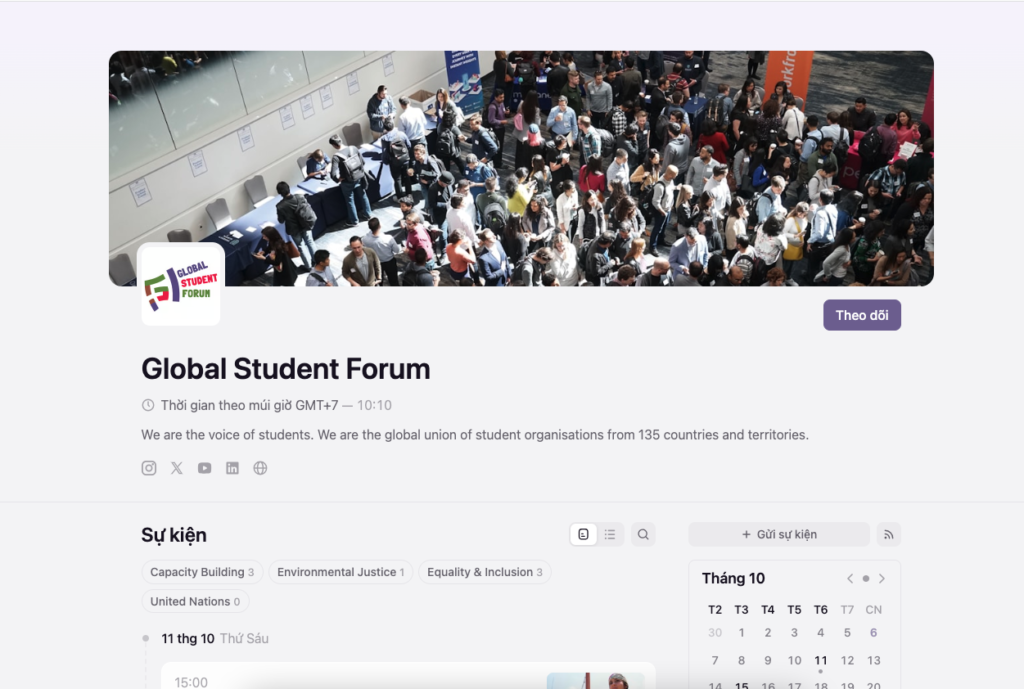US University Rankings 2024:
Click to see US national university ranking 2024
Introduction
In this post, we’ll delve into the key online resources that international students utilize, including university websites, online forums and communities, social media, search engines, and online application portals. We’ll explore their significance, benefits, and potential challenges, providing a comprehensive guide for students embarking on this exciting journey.

1. University Websites
The Official Source: University Websites
When it comes to researching universities, official websites are the gold standard. These sites serve as the primary source of accurate and up-to-date information. International students should prioritize visiting the websites of universities they are interested in, as they contain essential details regarding admissions, academic programs, student life, and financial aid.

Importance of Visiting University Websites
University websites offer a treasure trove of information that is often unavailable elsewhere. For instance, they provide comprehensive descriptions of academic programs, including course syllabi, faculty qualifications, and research opportunities. This information is crucial for students looking to make informed decisions about their majors.
Moreover, university websites are regularly updated to reflect changes in admissions policies, tuition fees, and academic offerings. This is particularly important for international students, who may not have access to the most current information through other means. By visiting official websites, students can ensure they are receiving the most reliable information.
Key Sections to Explore
Here are some key sections that international students should focus on when visiting university websites:
- Admissions: This section outlines the application process, required documents, deadlines, and specific requirements for international students. Understanding these details is crucial for submitting a successful application.
- Academics: Students can explore various majors, minors, and concentrations offered by the university. Many universities also provide insights into the curriculum, faculty, and available resources, such as research opportunities and internships.
- Student Life: The student life section provides insights into campus culture, extracurricular activities, clubs, and organizations. Understanding the campus environment can help students assess whether a university aligns with their interests and lifestyle.
- Financial Aid: This section includes information on scholarships, grants, and other forms of financial assistance. Many universities offer resources specifically for international students, making it essential to understand the funding options available.
Benefits of Using University Websites
The benefits of using university websites are manifold:
- Personalized Information: Many universities offer chat features or contact forms that allow prospective students to ask questions directly to admissions officers or current students. This personalized interaction can provide valuable insights that may not be available through general information sources.
- Direct Contact with Admissions Officers: Students can often find contact information for admissions offices on university websites, enabling them to seek clarification on specific questions or concerns.
- Access to Events: University websites frequently advertise virtual information sessions, webinars, and open houses. Attending these events can provide a more in-depth understanding of the institution and its offerings.
- Transparent Information: Unlike many unofficial sources, university websites present information transparently, allowing students to trust that the data they are receiving is accurate.
In conclusion, university websites are an indispensable tool for international students. By thoroughly exploring these sites, students can gain a wealth of information necessary for making informed decisions about their education in the US.
2. Online Forums and Communities

Connecting with Peers: Online Forums and Communities
Popular Online Forums and Communities
- Reddit: Subreddits such as r/InternationalStudents and r/ApplyingToCollege provide spaces for students to share their experiences, ask questions, and offer advice. These forums often feature discussions on everything from university selection to visa issues.
- Quora: This question-and-answer platform allows users to post specific inquiries and receive responses from a diverse range of contributors, including current students, alumni, and experts. International students can find detailed answers to their questions about various universities and majors.
- Facebook Groups: Many universities and organizations host Facebook groups specifically for international students. These groups serve as a space for students to share information, ask questions, and connect with others in similar situations.
The Value of Peer-to-Peer Advice
One of the significant advantages of online forums and communities is the value of peer-to-peer advice. Students can learn from the experiences of others who have already navigated the challenges of studying abroad. This can include insights on the application process, recommendations for scholarships, and tips for adjusting to life in the US.
Furthermore, online communities can provide emotional support. For many international students, the transition to studying in a new country can be overwhelming. Being part of a supportive online community can help alleviate feelings of isolation and anxiety, as students can share their concerns and receive encouragement from their peers.
Challenges of Relying Solely on Online Forums
While online forums offer valuable insights, there are challenges to consider:
- Information Overload: With so many voices contributing to discussions, students may encounter conflicting information. It can be challenging to determine which advice is reliable and applicable to their specific situation.
- Potential for Misinformation: Not all contributors have expertise or experience, which can lead to the spread of inaccurate information. Students should always cross-reference advice received on forums with official university resources or authoritative sources.
- Quality of Discussions: Some discussions may veer off-topic or become unproductive. Students should be discerning about which threads to follow and which contributors to trust.
In summary, online forums and communities provide international students with a valuable resource for gathering information and connecting with others. While these platforms have their challenges, the support and insights gained from peer-to-peer interactions can significantly enhance the university research experience.
3. Social Media
The Social Media Advantage: University Pages and Student Accounts

How Social Media Platforms Provide Valuable Insights
- University Pages: Most universities maintain official social media accounts where they share updates about campus events, news, and academic programs. Following these accounts can help prospective students stay informed about important happenings at the universities they are considering.
- Student Accounts: Many current students and organizations create social media accounts to document their experiences. These accounts provide an authentic glimpse into daily life on campus, including academics, social activities, and cultural events. By following these accounts, prospective students can gain insights into what it’s like to be a student at a particular university.
- Hashtags: Students can use specific hashtags to find posts related to their interests, such as #StudyInTheUSA or #InternationalStudents. This can help them discover content created by fellow international students and gather a wider range of perspectives.
Following University Pages and Student Accounts for Firsthand Experiences
By engaging with university pages and student accounts, prospective students can:
- Visualize Campus Life: Photos and videos posted by current students can help international students visualize what it’s like to live and study on campus. This is particularly helpful for those who may not have the opportunity to visit the campus in person.
- Stay Updated: Social media is often used for real-time updates, including information about application deadlines, open houses, and scholarship opportunities.
- Connect with Current Students: Many students are open to answering questions from prospective students via direct messages, providing another layer of personalized information.
The Importance of Critical Thinking When Evaluating Social Media Content
While social media is a powerful tool, it’s essential for students to approach the content critically. Here are some tips for evaluating social media information:
- Cross-Reference Information: Always verify information found on social media with official university sources. This ensures that students receive accurate and reliable information.
- Assess Credibility: Consider the credibility of the source. Is the account affiliated with the university, or is it a personal account? Check for credentials and the quality of content shared.
- Be Wary of Highlights: Social media often showcases the best moments, which can create an idealized view of university life. Students should seek out a balanced perspective by reading various sources and engaging with different accounts.
In conclusion, social media platforms provide a unique opportunity for international students to gain insights into university life and connect with others. By following official accounts and engaging critically with content, students can enhance their understanding of potential universities.
4. Online Search Engines
The Power of Search: Using Online Search Engines Effectively
Effective Search Terms and Strategies for Finding Relevant Information
- Use Specific Keywords: When searching for information, it’s essential to use specific keywords related to the desired major, location, or type of university. For example, searching for “best universities for international students in engineering” will yield more relevant results than a general search.
- Utilize Advanced Search Features: Many search engines offer advanced search features that allow users to filter results by date, type of content, or domain. This can help students find the most relevant and recent information.
- Explore Multiple Pages: Students should not limit themselves to the first page of search results. Exploring multiple pages can uncover lesser-known universities and unique programs that align with their interests.
Evaluating Search Results for Credibility and Accuracy
With the vast amount of information available online, evaluating the credibility of search results is crucial. Here are some tips:
- Check the Source: Look for information from reputable sources, such as official university websites, government education sites, and well-known educational organizations.
- Cross-Reference Information: Just as with forums and social media, it’s essential to verify information found through search engines by cross-referencing it with multiple sources.
- Be Cautious of Rankings: While rankings can provide insight into a university’s reputation, students should consider multiple factors when assessing universities. Rankings can vary significantly depending on the criteria used, so it’s important to understand what the rankings represent.
The Role of Search Engines in Discovering Lesser-Known Universities and Programs
Search engines play a vital role in helping international students discover universities and programs that may not be widely advertised. Many excellent institutions may not have the marketing budget of larger universities but still offer quality education and unique opportunities.
For example, a student interested in environmental science might find a smaller university with a specialized program and research opportunities in sustainability that align perfectly with their career goals. Using search engines effectively can help students uncover these hidden gems.
In summary, online search engines are invaluable tools for international students conducting university research. By using specific search terms, evaluating sources critically, and exploring beyond the first page of results, students can uncover a wealth of information to aid their decision-making process.
5. Online Application and Admissions Portals
Streamlining the Application Process: Online Portals

The Importance of Understanding Online Application Requirements and Deadlines
Each university has its own set of application requirements and deadlines. Understanding these details is crucial for international students, as missing a deadline can jeopardize their chances of admission.
- Gathering Required Documents: Online portals typically provide a checklist of required documents, such as transcripts, test scores, letters of recommendation, and personal statements. Students should familiarize themselves with these requirements early on to avoid last-minute scrambles.
- Knowing Application Deadlines: Deadlines can vary significantly between universities and programs. Keeping a calendar of important dates can help students stay organized and ensure they meet all application requirements.
The Benefits of Using Online Portals for Submitting Applications, Documents, and Essays
Online application portals offer numerous benefits for international students:
- Centralized Information: Portals provide a single platform for students to submit applications, upload documents, and track their application status. This centralized approach simplifies the process and reduces the likelihood of missing important steps.
- Document Management: Many portals allow students to upload documents directly, ensuring that all required materials are submitted in the correct format. This can save time and reduce stress.
- Application Tracking: Most online portals offer a tracking feature that allows students to see the status of their application in real time. This transparency helps students stay informed about their progress and any additional steps required.
Common Challenges Faced by International Students During the Online Application Process
Despite the benefits, international students often face common challenges during the online application process:
- Technical Issues: Some students may encounter technical difficulties when submitting applications or uploading documents. Familiarizing themselves with the portal before the deadline can help mitigate these issues.
- Navigating Complex Requirements: Understanding the specific requirements for international students can be challenging. Many universities have different policies regarding language proficiency, standardized test scores, and documentation.
- Cultural Differences: International students may also face cultural differences in the application process. For instance, writing personal statements can vary significantly in style and expectations between cultures. Seeking guidance from advisors or mentors can help students navigate these differences.
In conclusion, online application portals streamline the university application process for international students. By understanding requirements, utilizing portal features, and addressing potential challenges, students can navigate this critical step more efficiently.
Conclusion
In summary, the online resources discussed—university websites, online forums and communities, social media, search engines, and application portals—play a vital role in how international students gather information about US universities and majors.
Recap: University websites serve as the primary source of accurate information; online forums provide peer-to-peer support; social media offers authentic insights; search engines help discover lesser-known institutions; and online application portals simplify the application process.
Final Thoughts: As the landscape of education continues to evolve, the importance of these online resources cannot be overstated. They empower students to make informed decisions about their academic futures and facilitate a smoother transition to studying in the US.
Call to Action: We encourage all prospective international students to explore these online resources thoroughly and utilize them effectively in their university search journey. Your dream education is just a click away! Embrace the power of online resources, connect with peers, and take confident steps toward achieving your academic goals. Happy researching!
